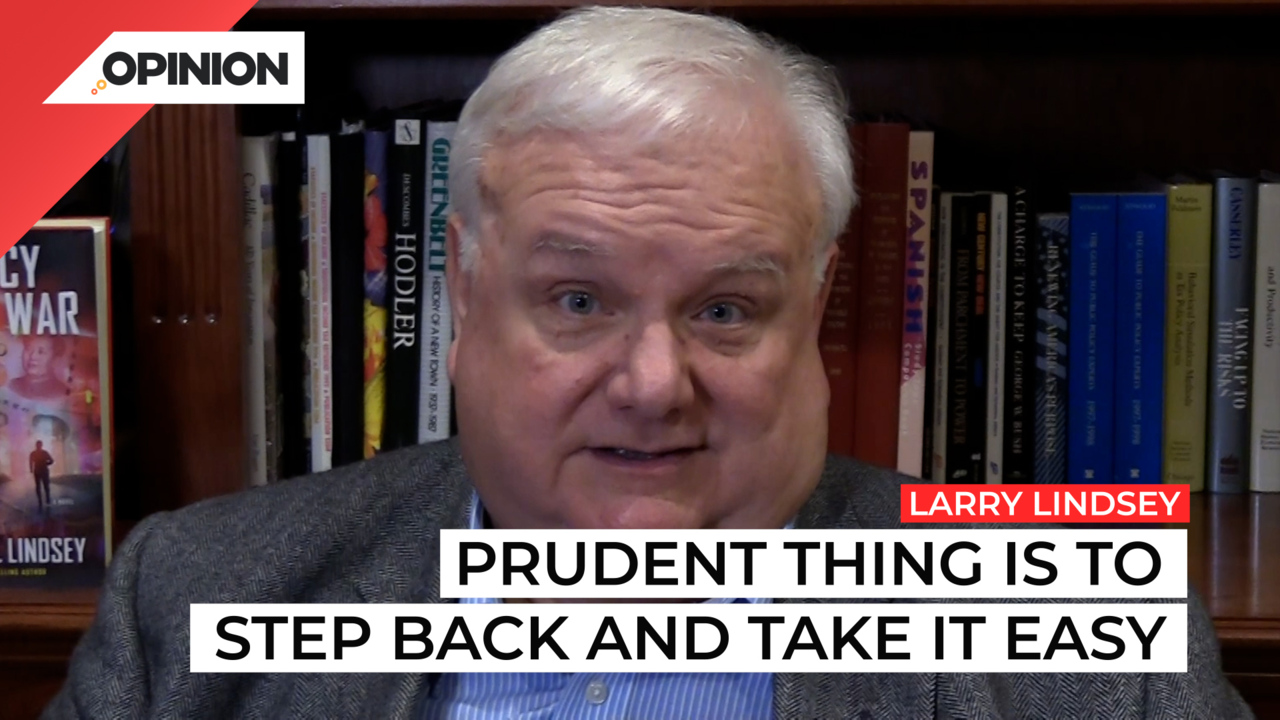
Commentary
-
Our commentary partners will help you reach your own conclusions on complex topics.
Well, now everyone is talking about recession. We have, as you know, for several months at least, but it’s now the talk of the town. What is a recession after all? Well, it’s like the Supreme Court and pornography. You know it when you see it. And there’s a special board at the National Bureau of Economic Research that officially calls the business cycle. It’s a bunch of independent academics, not government employees. Now, traditionally, they have looked at four different indicators as the primary indicator. The first is employment. And so far, so good on that score. The second is industrial production, which the Federal Reserve measures. Now industrial production includes a whole host of things. What we already know is that manufacturing is in decline. But overall industrial production, which includes mining, think oil drilling, is still holding up as long with utilities. In addition, there’s a an organization that ask businesses how they’re doing called market. And they reported that, in fact, manufacturing is declining in their surveys as well. Then there’s real final sales, which is declining. And finally, something called real disposable, excuse me, real personal income, less transfers, sounds technical, but that’s what it is. It’s essentially unchanged. So I would say we got one up two down, and one tide, we’ll have to see. There are other signs as well. For example, the Federal Reserve surveys businesses in each of the 12 Federal Reserve districts, three of the biggest ones, New York, Philadelphia, and Dallas, are all in contraction mode. In addition, the Michigan consumer sentiment index dropped 14%. In between May and June. It is now at the lowest level since it began, which was actually right after World War Two, it’s down to a level of 50. In the last three fairly deep recessions, they tended to bottom out in the mid 60s, so this is quite low. In addition, 79% of the people in the survey, expected worsening business conditions in the six months ahead. So consumers have a bleak attitude as well, to sort of put the ribbon on the whole story, to have government leaders. One is Treasury Secretary Powell, and the other is Treasury Secretary Janet Yellen. So Chairman Powell said, well, a recession is possible. And Yellen said a recession is not inevitable. Given everything, I suppose they’re putting as good a spin on it as possible. But that is pretty thin rule when it comes to defending the state of the economy. So what should you do? Well, you know, recessions are not the end of the world, we tend to have the about every six or seven years. The first thing you should ask yourself, Is Is your job secure. If your job is secure, you’re probably going to do okay. Your income as now may not keep up with inflation, but at least you’ll have an income coming in. The second thing you should consider is do you have a heavy amount of credit card debt. And to the extent possible, you should pay off your credit card debt and not use your credit card for charging purposes. Unless you pay it off at the end of the month. During the recession, it can build up easily, and that can lead you into financial trouble. And finally, and this is true at everyone, watch you’re buying the recessions are times of uncertainty. And when you face uncertainty, the prudent thing to do is step back and take it easy.
-
Election 2024 will boil down to the Great Lakes states
Pollsters and pundits have been engaged in a long debate about how Biden or Trump might win the 2024 election, with much of their focus spent on the “swing state” electoral battlegrounds. While the winners of Alabama or California may be obvious, for instance, who wins Pennsylvania is a more difficult question. Watch the above… -
Why the Fed should consider Theory of Reflexivity when fixing policy
The Theory of Reflexivity, often used in the context of economics and financial markets, implies that investors don’t base their decisions on reality but on their perceptions of reality. This creates a feedback loop where investors’ perceptions influence economic fundamentals, which in turn alter investor perceptions. Watch the above video as Straight Arrow News contributor… -
Federal Reserve surpassed its own wildest expectations
On May 14, the U.S. Bureau of Labor Statistics released the most current producer price index (PPI) report, which showed an increase of 0.5% month-over-month in April. After the report’s release, U.S. Federal Reserve chairman Jerome “Jay” Powell said that while he believes the current policy rate is restrictive by many measures, the Fed needs… -
Polls give slight advantage to Trump in Electoral College
With the U.S. general election only six months away, leading candidates President Joe Biden and former President Donald Trump appear to be engaged in a very close contest. In their 2020 race, the winner of the Electoral College was ultimately determined by a relative handful of voters in just a few swing states, even though… -
College sports is big money but not everyone benefits
March Madness has wrapped up and Caitlin Clark has emerged as a household name as well as a wealthy student athlete. Earning over $3 million throughout her college career, her success stands in stark contrast to the previous notion that collegiate athletes shouldn’t earn anything beyond their scholarship. Straight Arrow News contributor Larry Lindsey examines…
Latest Opinions
-
 Getty Images
Getty Images
US troops bolster border security to curb illegal crossings
-
 Getty Images
Getty Images
Zelenskyy meets with British prime minster following tense Trump meeting
-
 Getty Images
Getty Images
Trump admin. asks federal workers to detail weekly accomplishments, again
-
 Getty Images
Getty Images
Military members with gender dysphoria to be processed for separation: DOD
-
 Getty Images
Getty Images
Zelenskyy says Trump not owed an apology after White House dustup
Popular Opinions
-
In addition to the facts, we believe it’s vital to hear perspectives from all sides of the political spectrum.






